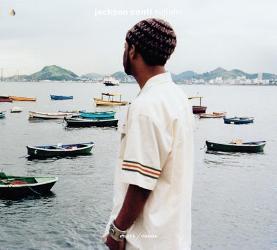
Jackson Conti
Sujinho
Mochilla
Rating: 




Sujinho is the first project from Madlib in 2008. But if history is any indicator, it won’t be the last. Since 2000, when he came of age with his classic Quasimoto adventure The Unseen, each year has brought an outpouring of Madlib-associated product: mix compilations like the Mind Fusion series; mainstream production gigs for Ghostface Killah, Talib Kweli and other rappers open to progressive beats; pseudonym-marked side projects such as Yesterday’s New Quintet and DJ Rels; fully produced albums for MF Doom, Dudley Perkins and Percee P; and collaborations such as the Jaylib project with J-Dilla. It’s a lot to absorb. Many critics and fans assert that Madlib doesn’t know how to edit his work, and simply issues gobs of tracks frustratingly similar to one another. But perhaps the best way to characterize his productivity (and distinguish it from mainstream producers who are encouraged to overproduce because of the sums they receive for each track) is to compare him to the jazz artists of the 50s and 60s. Much like John Coltrane’s deep oeuvre, Madlib’s catalog can be separated by a few towering achievements (The Unseen, Madvillain’s Madvillainy) and dozens of lesser works. Despite its pleasures, Sujinho falls into the latter category.
Sujinho finds him working with Ivan “Mamão†Conti, the Brazilian percussionist best known as the drummer for fusion rock band Azymuth. (Madlib’s real name is Otis Jackson, Jr., hence the name Jackson Conti.) The cover image, however, shows Madlib alone amidst the São Paulo coastline. It’s a sign that this is Madlib’s adventure, and it’s his perspective that we hear in the music. The 18 songs include a few originals alongside classic tunes from the mid 60s to the early 70s, the same territory he mines on his ongoing Yesterday’s New Quintet project. The only difference, it seems, is that instead of turning to fusion jazz and soul for inspiration, he’s looking to Tropicalia and bossa nova.
Perhaps the freshest aspect of Sujinho is the loopy way Mamão and Madlib play together. Mamão seems to physically embody Madlib’s “broken,†slightly off-beat approach to rhythm. His percussion skitters all over the place, hopping around like a pogo, before miraculously falling back on the one. Meanwhile, Madlib demonstrates his usual good taste in melodies. “Praca da Republica,†one of the originals on the disc, pulses with electric bass before opening up with synth keyboard stabs and a (sampled?) saxophone solo. The two deliver a nice, airy rendition of Luiz Eça’s “Barumba,†and Edu Lobo’s “Upa Neguinho†jumps with an energetic guest vocal from Orquesta Imperial’s Thalma de Freitas.
However, the overly familiar theme of Sujinho seems like the result of what Madlib imagines a classic Brazilian record should sound like than an original interpretation. In some ways, it resembles early Yesterday’s New Quintet material such as Angles without Edges, before he learned to absorb his fusion influences into a uniquely skewed perspective. Once he found his voice within that milieu, however, YNQ went on to yield some outstanding albums (particularly 2002’s Stevie). Sujinho is an intriguing escapade, even if it doesn’t rank with Madlib’s best work. But with luck, unless this is a one-time escapade for Madlib and Mamão, Jackson Conti will soon produce something equally great.

